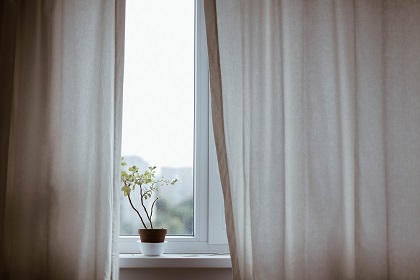Christian health workers facing Covid-19: ‘I am very aware of my vulnerability’
Christian doctors, nurses and other health care workers tell us how they are living the coronavirus crisis.
Protestante Digital · 24 MARCH 2020 · 10:22 CET

On Monday 23th March 2020, the number of infected people with Covid-19 in Spain exceeded 35,000, with 2,300 dead, putting hospitals in an extremely difficult situation which is becoming untenable. This is what doctors, nurses and other health workers from different countries have told Evangelical Focus.
‘Hospitals are filling up and we are opening specialised wards’, said Lydia, who is co-ordinator of social work in nine health centres in a city near Barcelona. Everything has changed in a few days and ‘we have staff who are testing positive to the virus’. Despite the tension, the ‘good will’ of all workers continues. ‘Some patients arrive with just the clothes they are in and never see their loved ones again’. Confinement is especially difficult for people who are autistic and for those who are dependent.
Nobody knows how long this crisis will last, but ‘this will have a massive emotional impact’, says Lydia. In the days to come, ‘the church and Christians in general will have to be available to support people (…) Our testimony must be rooted on how we treat and help those around us’. You start with simple things, such as ‘staying at home’.
NURSES AND THE HUGE EMOTIONAL NEEDS
According to Cristina, a nurse in a hospital with a high proportion of elderly and palliative care patients, ‘we are urged to be responsible with the use of face masks’ because ‘we must make the most of the resources we have’. Those who are front line health workers ‘are very used to dealing with sickness, pain, fear and stress’, but the ‘emotional’ needs of many patients are huge, especially when being in isolation means visits are cut down. You must ‘keep your own emotional resources so that you can offer help, comfort and calm to those who need it’, she says.
Cristina is from Madrid and she is finding that fear takes hold of her when she hears of sick people or those who are losing their jobs back at home. ‘Why not admitting it?’. She tells us of the need ‘to depend on God, especially when everything else is collapsing around us’. She is convinced that these are days to remember God’s promises which we find in the Bible, such as Psalm 46:1. We are presented with opportunities to ‘talk to others about the Lord, always with love and humility’ and ‘when seeing our human vulnerability, many people will get close to God so that they know Him’.

Elisabet is also a nurse, working in a hospital in Madrid. She describes the good spirits amongst the staff, ‘always lending a hand. It is a blessing to be so supported at this time’. She describes the difficult situations with other colleagues ‘as we share the emotional burden with each other’. The situation amongst the patients is ‘very hard’, because to the respiratory illness ‘you have to add uncertainty and loneliness’. As nurses, ‘we try to encourage them and show them love, but it is not easy, because there is nothing like your own family’s love’.
Talking to her husband, who is also a health worker, ‘we were saying that this is a time, especially for the young people of our church, to stop looking at our mobiles and open the Bible more often. When this is over (or whilst it lasts), the church must look for ways to reinvent the way of sharing the gospel’. In a time where ‘the fragility of life’ is very real, ‘a revival is possible, why not?’.
IN THE ‘FURNACE OF FIRE’, GOD IS IN CONTROL
Mónica is a doctor in Mataró, working with people on end of life in their own home. They have split up in two different groups with her colleagues, ‘so that if someone gets sick, the others can carry on working’. One of their concerns is ‘the lack of adequate equipment for the visits’.
The crisis reminds her of the book of Daniel (in the Bible) and, in particular, the story of the furnace of fire. ‘Although I love my job and I take all the precautions, I am very aware of my vulnerability. I know that the only one who can keep me safe so that I can continue to look after my patients is God. Even if this was not the case, I believe I should be where I am, and I ask for His strength. I also ask for wisdom, not just for myself, but also for my family, so that we can face what is coming’.
Francine, in Girona, normally works with immunocompromised patients. Now that the shifts are weekly, to reduce risk, she awaits her turn at home. ‘As a Christian, I believe that God is in control of the situation’, she says. ‘We have a Father who knows the reason for this situation and for whom there is nothing impossible’.
PHARMACEUTICALS: PREVENTION AND EXAMPLE
‘We are becoming more aware of the danger of contagion and propagation of this new virus; therefore, we are all taking the necessary preventative measures’, explains Javier, a pharmacist in Granada. The atmosphere at the chemist is, until now, ‘very good, as well as with patients. In these days of confusion, remember Jesus’ words about ‘hunger, epidemics and earthquakes in the last days’, and how he emphasized that we shouldn’t be afraid, but we should keep close to Him’.
José Luis, from Oviedo, works in a pharmaceutical co-operative. He describes ‘a great increase in the workload to keep with demand’, and, in general, can see ‘concern’ in the sector. But he praises ‘citizens that have been very conscious of keeping the security distance, which has generated queues at pharmacies.
José Luis has shared an article by Pablo Martinez, about Psalm 91, with his colleagues. Furthermore, he has been meditating on Acts 27 in the last few days, a story in which three different groups of people suffer the same crisis, ‘the same shipwreck’. Paul, from his communion with God, is an example when ‘taking practical decisions’ in the middle of the crisis, and, as far as possible, ‘gives orientation to those who have the control of the situation’.
At the Alicante health centre where Carol works in reception, the atmosphere has moved from being calm a few days ago, to ‘being tense’. The majority of users understand the cancellation of appointments due to the emergency situation, but others ‘are not understanding the gravity of the issue and they are still coming, regardless, with non-important queries which could be solved another time’.
In moments like these, she says, ‘Christians can be a light and a help, putting our trust in God’, she thinks. ‘There are lots of things in life that are out of our control, but we can put our trust and faith on the Rock’.
EUROPE AND THE WORLD
In other parts of Europe, the coronavirus crisis has disturbed the atmosphere. That is how Anna, a paediatric nurse in Brussels (Belgium), explains it. She talks about a similar situation of ‘unease, both in the population at large as well as amongst the professionals’. People are working ‘extra hours’ and ‘there is a shortage of resources’, but ‘it is a blessing to be able to serve at my place of work. Despite the difficulties, I feel protected under God’s wings’.
In the United Kingdom, Noemi, a receptionist in a care home for the elderly in the south of England, says that humour is often used to overcome the tension. She finds that the younger workers and those who have no faith in God are the most worried ones. As a Christian, she thinks that ‘the crisis is an opportunity to share the hope we have in our faith’, in a simple way, ‘just by saying that we must pray, that we are in God’s hands and that God is in control. It is a good time to make sure we are reading our Bible, where we find the help, guidance and comfort we need and to pray earnestly’. She has also been able to reflect ‘on God’s divine provision’.
Meanwhile, in Latin America, thousands of miles from the epicentre of Covid-19, the countries are getting ready. Vicente, a doctor working in La Paz (Bolivia), says they ‘are doing their best as face mask and alcohol gel are scarce’. The government has put in place preventative measures and ‘we are progressively in a stricter quarantine’. But some sectors of society are ‘opposing these measures because of their ignorance (politicians from rural areas or from the previous government)’. Meetings of more than 100 people have been forbidden and ‘churches have closed their services and other activities’. Vicente concludes: ‘This time is a desert that will test the faith of many. We hope that many will strengthen their faith and knowledge of God’.
Published in: Evangelical Focus - life & tech - Christian health workers facing Covid-19: ‘I am very aware of my vulnerability’
